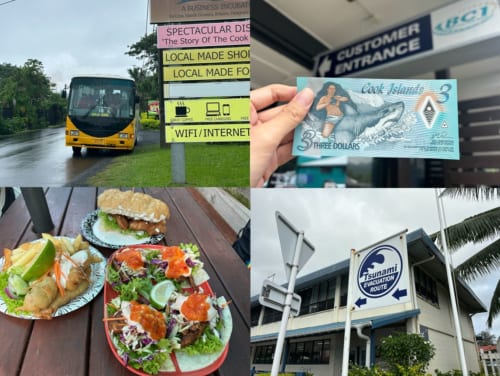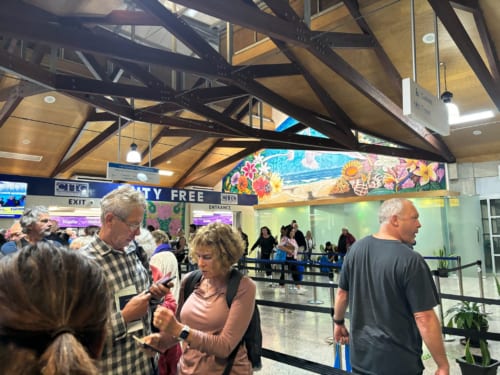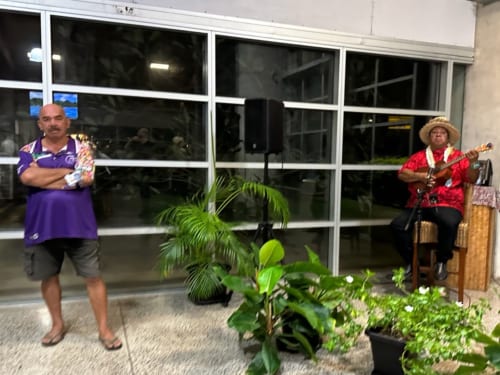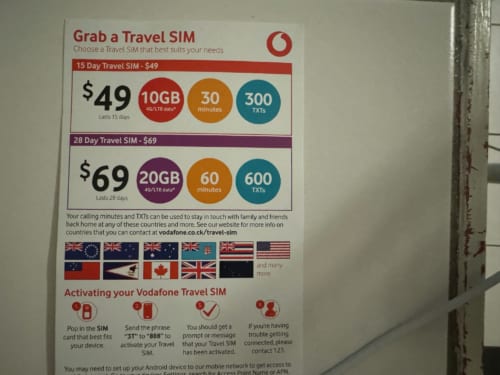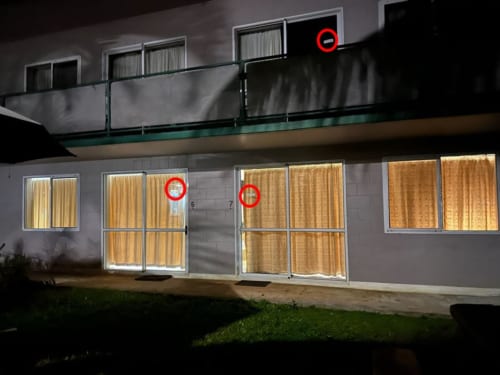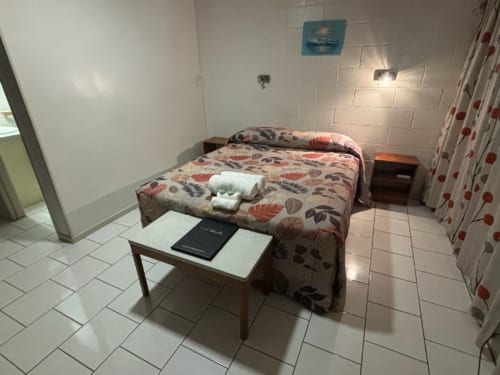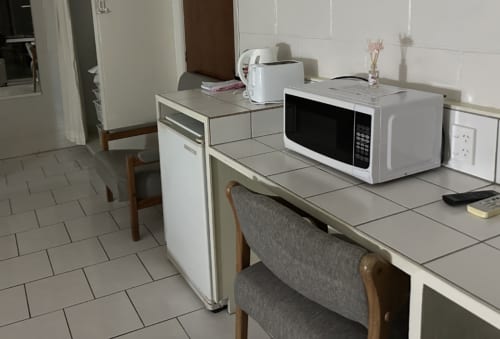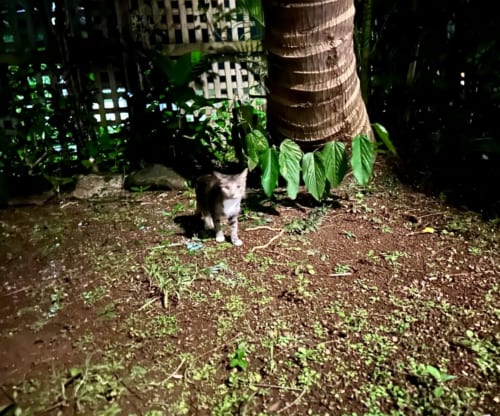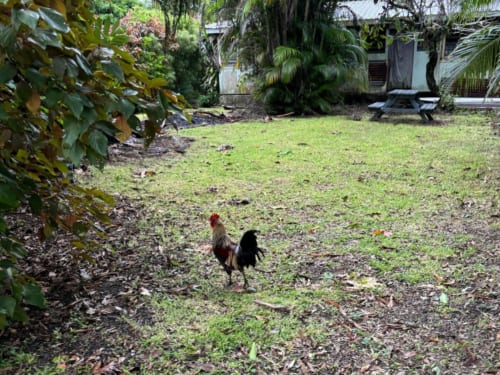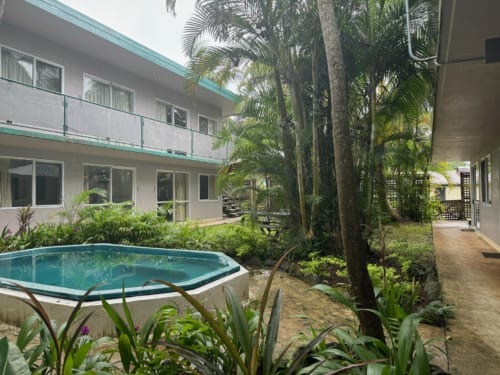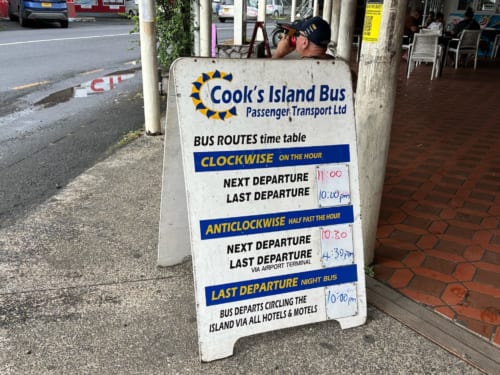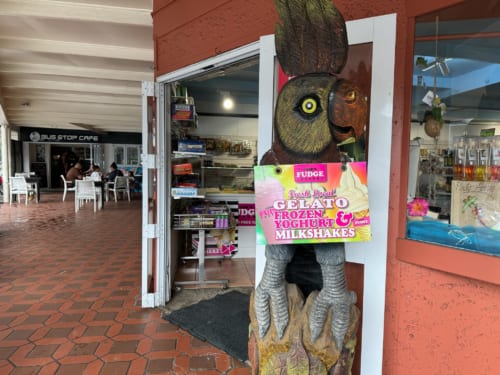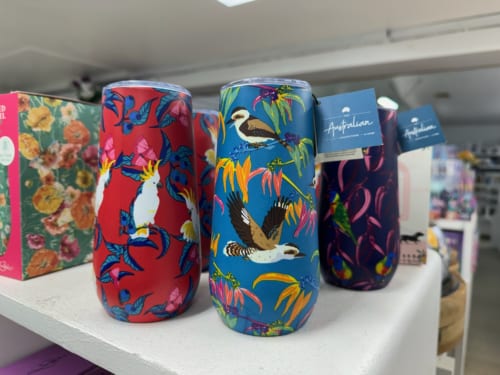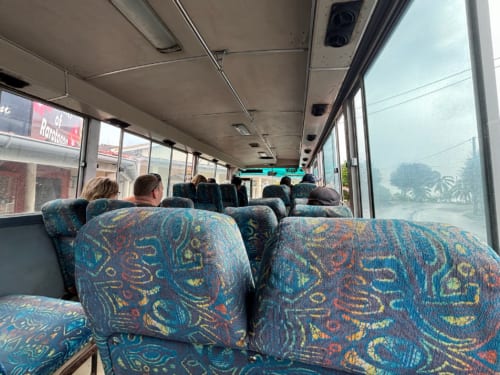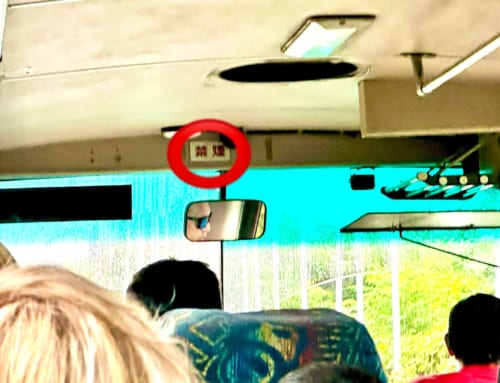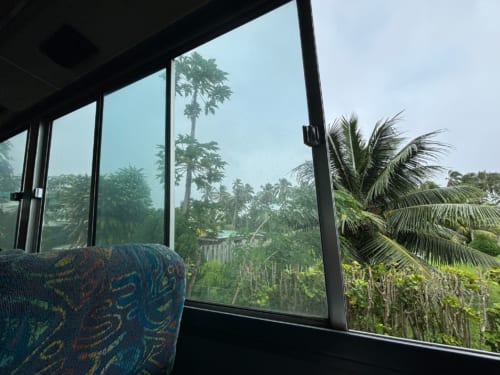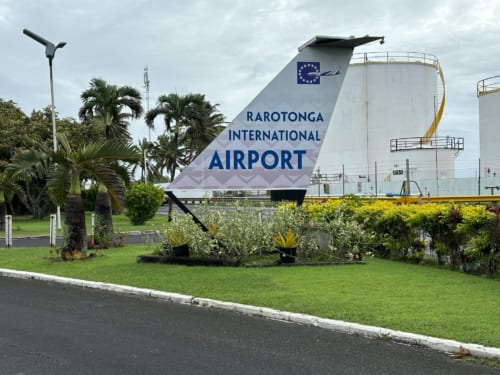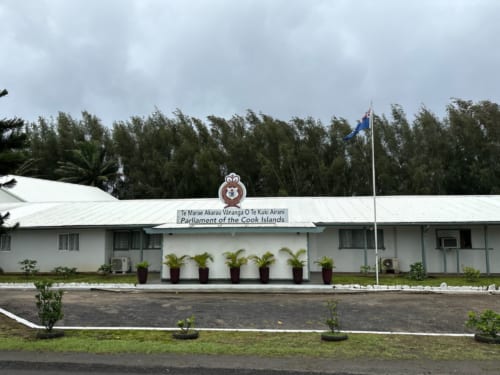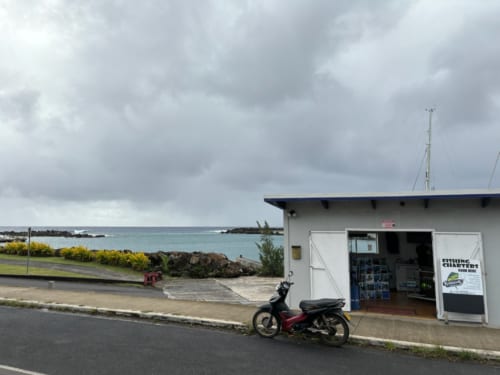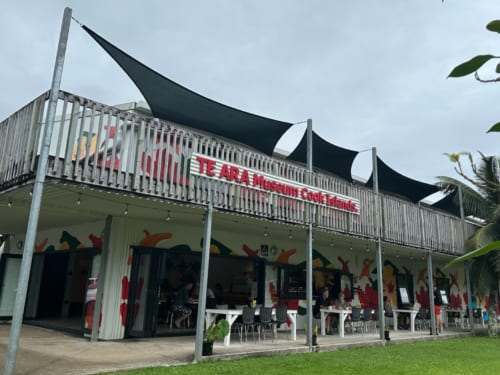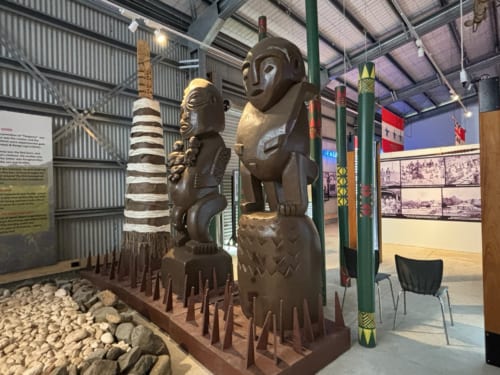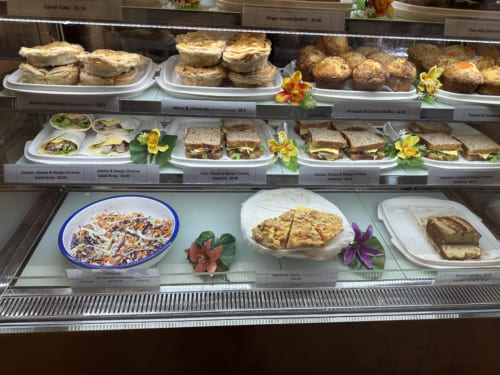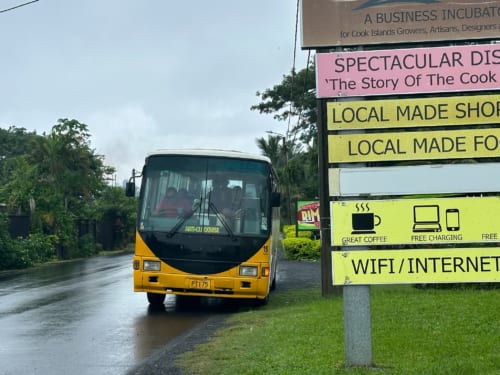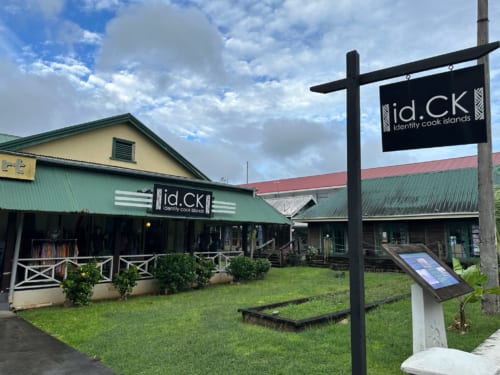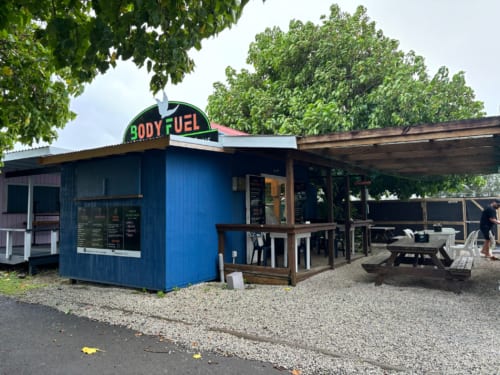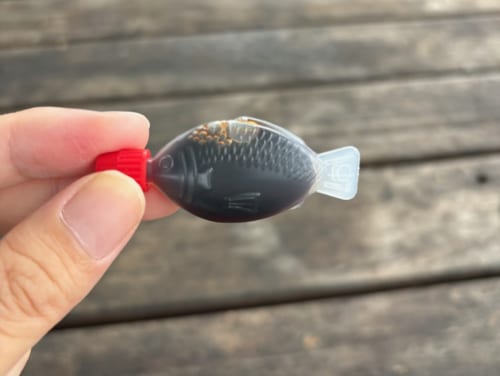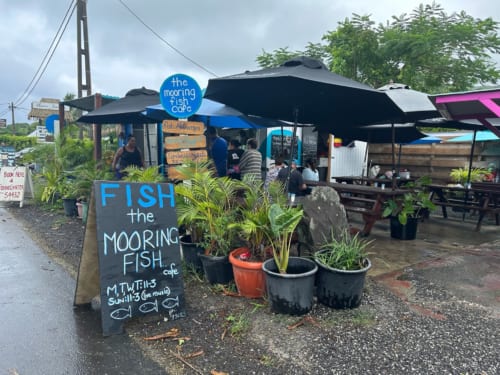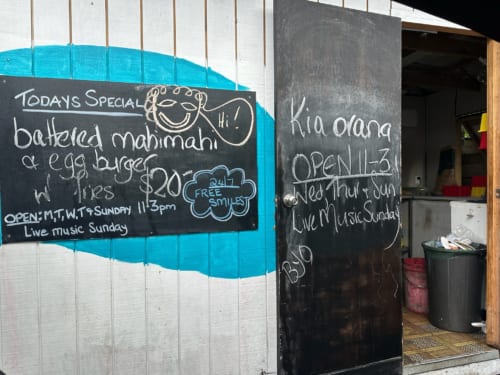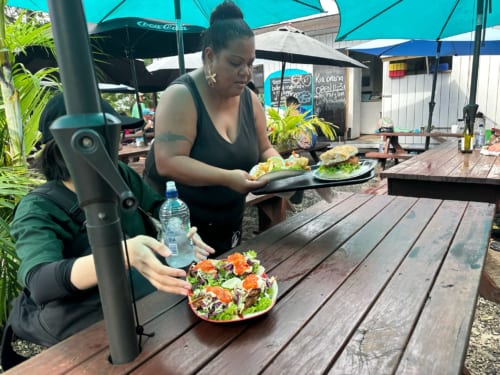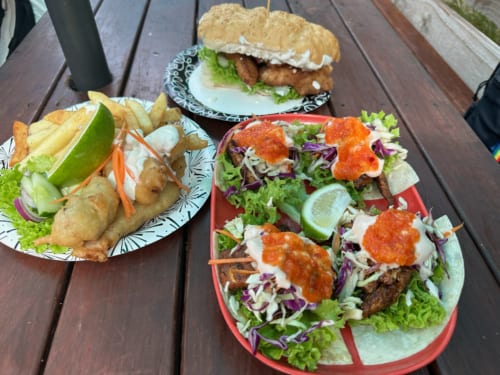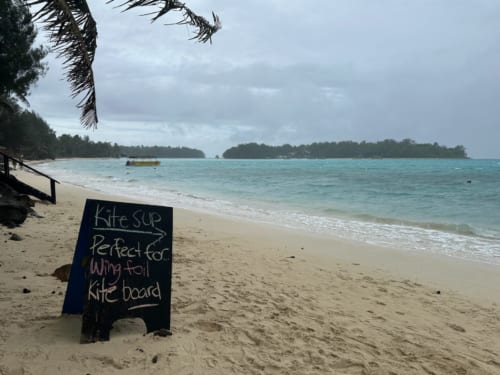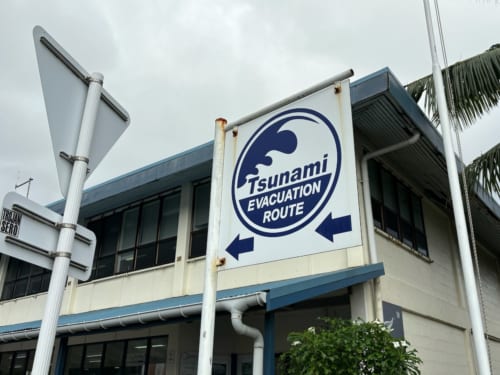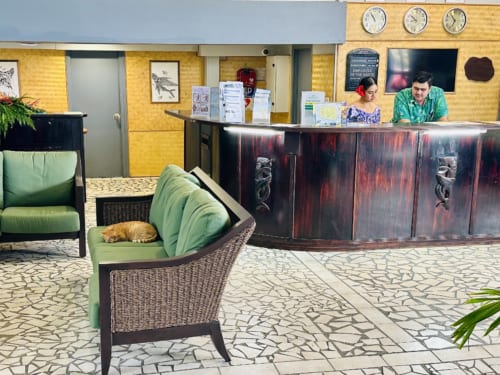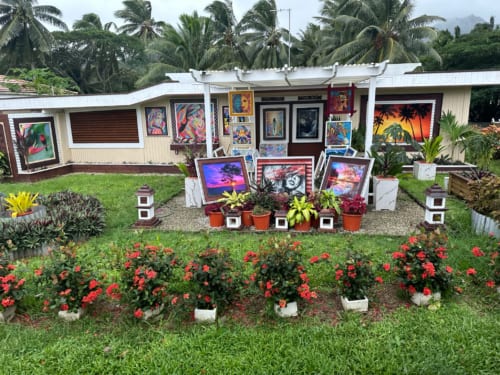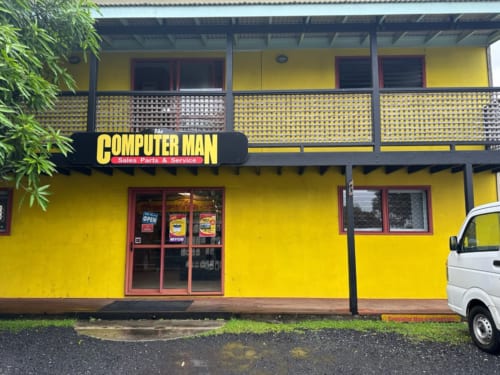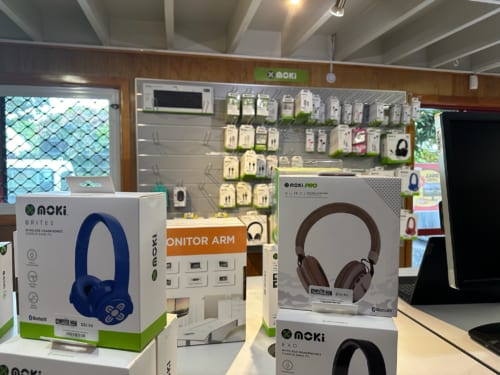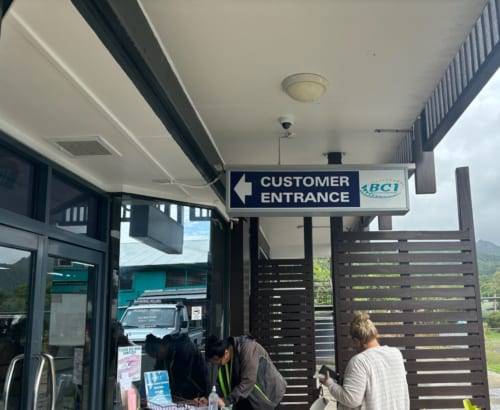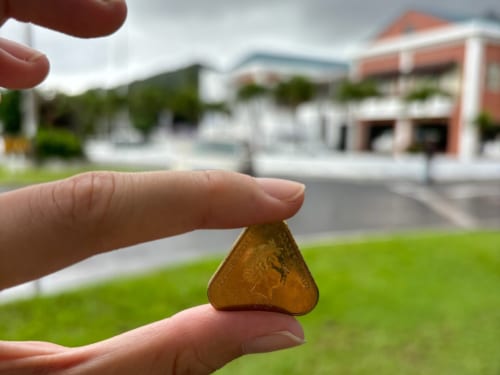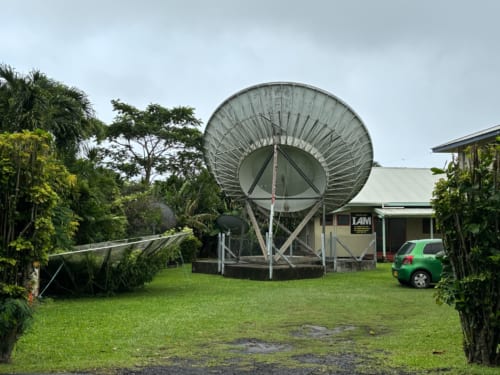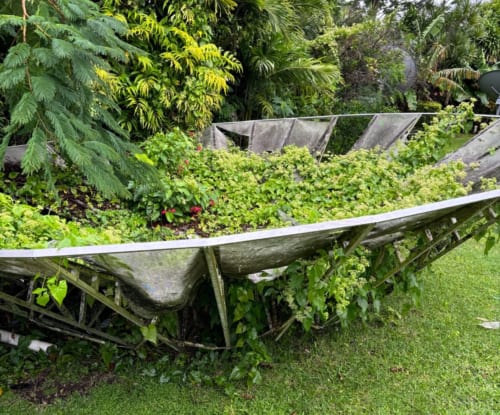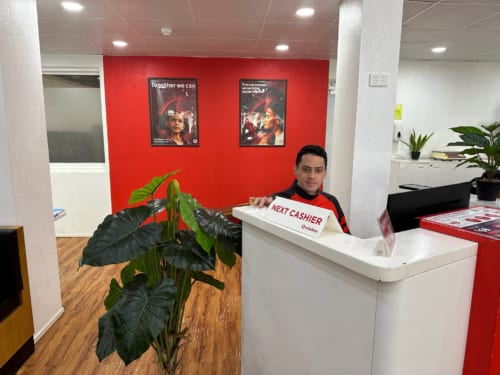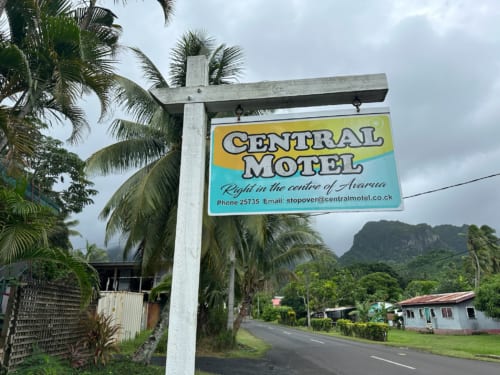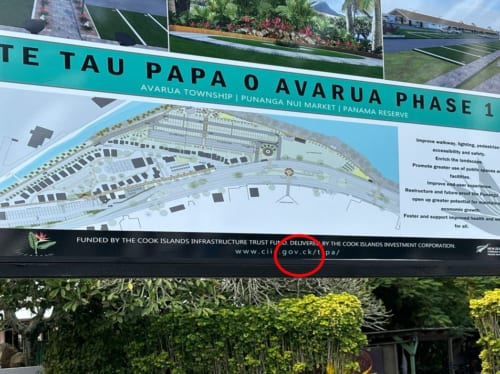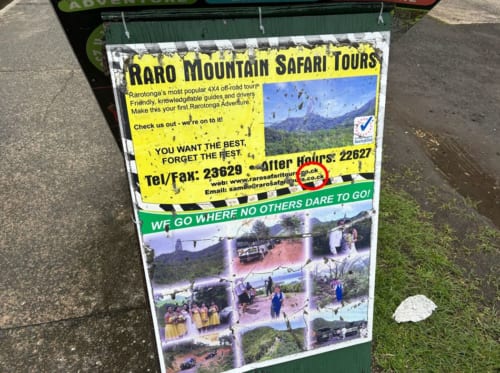The Cook Islands, a group of 15 islands in the South Pacific, were mapped by and named after British naval officer and explorer James Cook. The largest island, Rarotonga, where the capital Avarua is located, is a popular resort location often known in Japan for being the setting of Nagisa Oshima’s movie “Merry Christmas, Mr. Lawrence”. On this Domain Tour, we explored the island on an old Japanese bus, searched for the world’s only $3 bill in use, visited gourmet restaurants (including a place that serves deep fried sushi) and visited a historical museum. The ccTLD for the Cook Islands is “.ck“.
◆Where are the Cook Islands?
Located between Fiji and Tahiti, the Cook Islands are about a 4-hour flight from New Zealand. The total area of the islands covers 237㎢. On this trip, we visited Rarotonga, where the international airport is located. The local currency is the New Zealand dollar (NZD).
* As of May 2024
= Table of Contents =
◆A Boarding House-Like Motel
◆Traveling Around on an Old Japanese Bus
◆Cook Island Cuisine – Uneaten Fried Sushi and Other Fish Dishes
◆How to Get the World’s Only $3 Bill -and Other Cook Island Highlights
◆Massive Antennas in a “.ck” Registry Fairyland
◆Finding “.ck” Around Town
◆How to Purchase a SIM & Test the Internet Speed
◆A Boarding House-Like Motel
Our flight took around four hours to reach Rarotonga International Airport from New Zealand. We descend the boarding ramp and walk through the hot, humid air towards immigration.
Even before reaching immigration, an official asked me in some detail about the purpose of my trip. We needed to go through biosecurity checks, just like in New Zealand. In New Zealand we had to fill out a card and answer some questions from a biosecurity officer, but here we just needed to fill out a card.
After passing through immigration, we were welcomed to the country with a live ukulele performance.
We stop to set up a SIM, since there are no eSIM plans available in the Cook Islands. This Vodafone store in the airport was still open, even after 10pm.
There are only two plans. 15 days for $49 NZD or 28 days for $69NZD. We will only be here for 2 days and 1 night, but we had to go with the 15-day plan. I suppose this means most people visit for rather long vacations?
There is a hotel shuttle bus that takes people from the airport to the hotel.
It only took us around 5 minutes to reach the Central Motel. There was no reception desk. There were no staff around and there was no check-in procedure. Each room had a sliding glass door, which gave the place a boarding house-like feel. We were able to enter the room simply by marking and confirming our name on a sticky note that was posted on the sliding door.
Inside, we lock the doors and close the curtains. We found the key in one of the cabinets.
While the simplicity of the room reminded me of a boarding house, the room did come with dishes, a kettle and a microwave. No hair dryer though. Since there are mosquitoes and other insects, we recommend you bring insect repellent with you.
We start hearing a cat meowing outside, so we rushed out into the courtyard and in the darkness, see an adorable little kitten.
The next morning, we awoke to the sound of chickens and lawn mowers. Chickens live free-range throughout the island.
The motel is a two-story building that surrounds a courtyard with a pool. Unfortunately, we begin our Domain Tour with poor weather.
◆Traveling Around on an Old Japanese Bus
“Cook Island Bus” is a public bus service that circles Rarotonga island. They have their own app Transportme Passenger, so we downloaded it. It’s supposed to show the location of the bus in real time, but for some reason it wasn’t working. It also shows the location of each bus stop, so that was helpful in finding the bus stop we needed.
Putting our trust in the app, we head to “Cook’s Corner“, the first and last bus stop on the route. After about a ten-minute walk from Central Motel, we found a sign for Cook’s Island Bus in a corner of a shopping mall with small cafes and souvenir shops. The next departure time is handwritten. There are two types of buses, “Clockwise” and “Anti Clockwise”, which run at hourly intervals, traveling either a clockwise or a anti clockwise route around the island.
We decided to take the Anti Clockwise bus departing at 10:30am. While waiting for the bus we check out some of the souvenir shops.
We saw many products with cute bird designs.
Like Nauru and the Commonwealth of Dominica, Rarotonga, too, also has a lot of free roaming dogs.
Our bus has arrived. We paid $5 NZD to the driver as we boarded. It’s $5 NZD no matter the distance you travel.
Our seats have a pattern that feels familiar. They’re very soft and comfortable, and somehow feel nostalgic.
We notice that “No Smoking” is written in Japanese characters above the rear-view mirror. They’re using old buses from Japan! Vehicles in the Cook Islands drive on the left side of the road, same as Japan.
We begin our journey. There’s no air conditioning. Most of the windows are wide open, even though raining and water is getting inside the bus. The bus makes a complete circle of the island’s 32km road in around 50 minutes.
We can enjoy views of Rarotonga through the wide-open windows. We pass by Rarotonga International Airport where we arrived last night.
The Cook Islands Parliament. This is where the Cook Island parliament members meet.
It’s nonstop peaceful scenery.
We’ve been on the bus for 40 minutes. We get off at the bus stop “Mooring Fish Cafe”, which is located in front of a cute and colorful two-story building. It’s the Te Ara Cook Islands Museum of Cultural Enterprise.
Admission is $15 NZD. The museum opened in February 2017 to showcase the history of the Cook Islands and to encourage local cultural businesses.
Eating and drinking areas could be found on the terrace and indoors.
After looking around the museum, we had lunch, and then we boarded the Anti Clockwise bus again.
In Banana Court, one of the oldest buildings in the Cook Islands, there was a store called “id.CK” which sells the latest fashion and accessories. Driving a few minutes past “id.CK” we arrive back at Cooks’ Corner. And that completes our round trip of the island. We didn’t see a single traffic light along the way.
◆Cook Island Cuisine – Uneaten Fried Sushi and Other Fish Dishes
・Body Fuel Cafe – Famous for its Deep-Fried Sushi
For breakfast, we went to Body Fuel Cafe, which is a 15-minute walk from the Central Motel. It’s located by the sea and is one of a few small restaurants in the area. There were no other customers, maybe because it was windy and drizzling.
We were told that the most popular item on the menu is the deep-fried sushi, so we went with that. $10 NZD.
It came with the familiar tiny fish-shaped soy sauce container.
It’s delicious! But it doesn’t look or taste like it has been deep fried? The ingredients seem to be teriyaki chicken, cucumber and carrots. We checked the restaurant’s website later and fried sushi rolls were indeed featured there. But we clearly ended up with something completely different.
・The Mooring Fish Cafe – Outdoor seaside restaurant
We go for lunch at the Mooring Fish Café, which is just a few minutes’ walk from Te Ara Cook Islands Museum of Cultural Enterprise, one of our stops on the bus trip.
Mooring Fish Café, which has a bus stop of the same name, is said to be the most popular restaurant on the island, crowded with both tourists and locals. On the “Today’s Special” menu they offer “free smiles”. Now, where have we heard that expression before…?
A friendly waitress brings us our food.
We ordered, from the left, Fish and Chips ($22 NZD), the FOB deep-fried Mahi-mahi sandwich ($18 NZD), and on the bottom right, Cajun Mexican tacos ($25 NZD). Even though we ordered a lot of food, each dish was seasoned differently so it kept things entertaining to the last bite. We enjoyed various textures – the tacos had been grilled, the fish and chips were crispy on the outside and soft and tender on the inside and the FOB sandwich also had a nice crispy texture.
We were told that across the road on the beach, we would be able to see crabs as far as the eye could see, so we decided to check it out after our meal. We walked around the beach for a while, but we didn’t see a single crab. If we had come when the weather was nicer, perhaps we could’ve seen some crabs.
◆How to Get the World’s Only $3 Bill -and Other Cook Island Highlights
All over the island we saw signs that indicated the evacuation route in the event of a tsunami.
A hotel in Avarua. We saw a cat sleeping comfortably on a sofa near the reception desk. It’s nice that no one seems to mind.
An ordinary house that looks like an art gallery.
A store called The Computer Man, just 3 minutes from Cook’s Corner. Let’s take a look inside.
It sells computers and related computer accessories, audio equipment, etc. It opened in the year 2000. They also provide on-site assistance with setting up computers and internet connections.
The Cook Islands has a very rare $3 bill, apparently the only one in the world. But, as it’s not commonly distributed, you’d have to be lucky to find one! We didn’t have time to wait and see if luck was on our side, so we just went directly to BCI Bank.
We went inside and waited for our turn. When we told the teller that we wanted a local $3 bill, we simply exchanged $3 NZD for one. This is it, the world’s only $3 bill, found only in the Cook Islands.
By the way, look at this Cook Island $2 coin – it’s triangular! Both of these would make unique souvenirs.
◆Massive Antennas in a “.ck” Registry Fairyland
The registry for “.ck” is located right here in Rarotonga. As usual, we haven’t made an appointment, but let’s visit anyway.
As it’s managed by Vodafone, there are also several large parabolic antennas on site.
We even found an abandoned antenna that had fallen over and was overgrown with vegetation. It gave the area a fairyland like atmosphere and we were half expecting friendly little animals to start appearing.
Unfortunately, the person in charge was on a business trip to New Zealand, so we couldn’t meet them. But the staff we did meet were friendly and helpful.
◆Finding “.ck” Around Town
We saw many examples of “.ck” around Rarotonga. At our accommodations, the Central Motel.
An announcement regarding the first phase of a renovation project in Rarotonga’s main central business district. The plan includes significant improvements to footpaths, street lighting, pedestrian accessibility and safety, redevelopment of public bathrooms, and a more pleasant user experience. It’s expected to take up to 18 months to complete.
Sign for a tour on Rarotonga.
A Guest House.
◆How to Purchase a SIM & Test the Internet Speed
We used a SIM card that we purchased at Rarotonga International Airport. We measured a speed of 46 Mbps.

